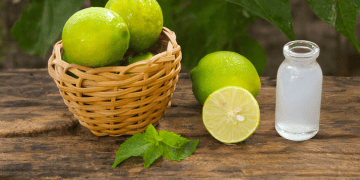On February 6, 2025, the Argentine government announced a new system to monitor lemon juice concentrate exports to the United States. This was outlined in Resolution 18/2025, which was published in the Official Gazette. The system is intended for Argentine exporters who are part of the Suspension Agreement related to an investigation into unfair pricing practices, known as dumping. Currently, there are 15 companies involved in this agreement.
The original Suspension Agreement began in 2016 and included almost all Argentine lemon juice exporters. It aimed to set minimum prices to avoid dumping in the U.S. market. After being renewed for five more years in 2022, the agreement needed updates in January 2025 to address issues caused by fluctuations in international prices. The recent updates introduced new reference prices, ways to adjust them, and a monitoring system to ensure compliance. These changes were communicated on January 24, 2025, and published in the U.S. Federal Register.
According to the resolution, the Argentine exporters requested this monitoring system, and it is meant to help them comply with the Suspension Agreement while maintaining access to the U.S. market. The system will be transparent and follow World Trade Organization guidelines to ensure that exports meet the required standards. If the exporters do not comply, they risk losing the agreement and facing heavy duties, which could endanger their ability to export to the U.S.
In 2023, Argentina was the biggest supplier of lemon concentrate juice to the U.S., with a 34% market share, which increased to 37% in 2024, based on official reports.
The monitoring system will track all annual exports of lemon concentrate juice in different forms, including frozen concentrate and non-concentrated sour juices. It will cover specific tariff categories and will remain active for the entire duration of the Suspension Agreement.
Only those companies that initially signed the 2016 agreement and its later amendment are allowed to export under this new system. These companies must have accepted the latest revisions and provided the necessary paperwork to the U.S. Department of Commerce. Future companies joining the agreement will have the same rights and responsibilities as those who signed it originally.
The General Directorate of Customs, a part of the Revenue and Customs Control Agency, will oversee the export authorization process under this new system. Exporters must meet the requirements set by the authorities. The Undersecretariat of Agri-Food Markets and International Integration will keep a monthly record of the customs activities of participating companies, gathering detailed information on prices, types of transactions, destination countries, ports of departure, shipment dates, and export amounts. This information may be shared with the U.S. Department of Commerce if needed for price analysis and compliance monitoring.
This new measure, which goes into effect on February 7, 2025, aims to ensure clear trade practices for lemon juice exports to the U.S., fulfill international obligations, and promote fair competition within the export industry.
Stay informed on supply chain news at The Supply Chain Report. Free international trade tools are at ADAMftd.com.
#ArgentinaLemonJuiceExports #USMarketCompliance #SuspensionAgreement2025 #LemonJuiceMonitoringSystem #FairTradePractices #InternationalTradeRegulations #CustomsOversight #ExportAuthorization #AgriFoodIntegration #GlobalTradeCompliance















